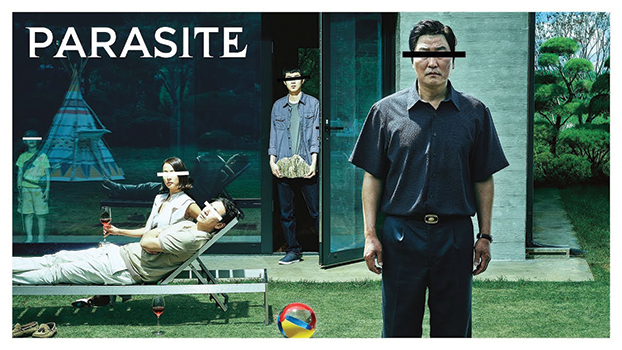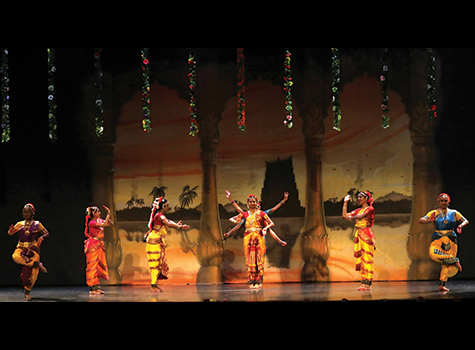
I’ve seen Bong Joon-Ho’s Oscar nominated and Golden Globe winning film Parasite twice now, and the second time was better than the first! This movie was shot so well, written even better, with superb acting and the message was the icing on the cake. Parasite embodies what a great film should be, enthralling but accessible to the non-cinephile.
All art is subjective, its beauty varies person to person. I see the elaborate form of live theater in professional wrestling where most people only see fake fighting for redneck slobs, others see art in Warhol’s depiction of soup cans or Mao with lipstick, I am sure there is a deep convoluted explanation for its beauty but I don’t get it. I am someone who enjoys art that is high in quality but not elitist. Art is only relevant if it can be grasped by the masses and not only small pockets of society.
I say this understanding that Parasite will only reach a small section of the American population for many reasons. One, it is a foreign film that will throw conservatives into a fit because of its subtitles. Two, its theme is partisan—it is a Marxist film at its core. Three, it’s not an action driven blockbuster which is in vogue today. The third point I must add a caveat, there are plenty of films American’s enjoy that are not action/adventure movies but the current moviegoers desire trends towards that, it’s not bad but Parasite does not fit that category. Regardless, it has all the qualities to grip the average person if the above three hurdles can be overcome because it has message that relates to the people, the masses, the 99 percent.
Most of the world works for a boss for a living, according to Marxists this relationship is parasitic and exploitative due to the worker performing labor that generates a surplus value which accrues into profit that the worker never receives. Unless the workers themselves control the means by which production is controlled then every boss is an exploiter and every worker is exploited. This is what Bong Joon-Ho is trying to show.
Bong Joon-Ho’s uses the Kim and Park families to explain this fact. The Kim family are a poor South Korean family that must do odd jobs to survive, in the movie they fold pizza boxes together. Their luck changes when the son Kim Ki-Woo, played by Choi Woo-Shik, is offered an English tutor position for the wealthy Park families’ daughter. Ki-Woo uses his in to get the rest of his family hired as an art teacher, valet and housekeeper. They con the gullible Park family into firing the other staff members. In their time working for the Parks they enjoy a short-lived comfortable life parasitically attached to the wealth of the Parks, but Bong Joon-Ho goes further to show that it is the Parks themselves who are the real parasites. The wealth that the father, Mr. Park, has accrued is from being the owner of a tech company, to them the poor and workers are just tools to profit off and make their lives more comfortable at whatever cost.
Bong uses the relationship between these two families (this is a spoiler free reflection of the movie, but there is another twist!) to show parasitism. This part is well known, however this movie captured me for the opposite reason Bong was trying to convey. His conclusion is a dark, cynical view of the reality of poverty under capitalism. He is upfront he believes that while the exploited will revolt against their oppressors, this will, in the final analysis, be futile. The system won’t change, no matter how many leaders are killed, there is no real upward mobility. Where Bong gets it wrong is not the conclusion but in the sequence of the oppressed rising up. This is the energy that is important, upward mobility has always been for a limited amount of people, if that is one’s life’s goal than its more of a dream that can become a nightmare. However, changing the conditions people live in through organizing, activism, building organizations and fighting for a new society has happened many times before. It is realistic.
Bong Joon-Ho’s vision is individualistic, but its beauty lies in its aesthetic and as allegory. Average people are not just apathetic tools that play no role in shaping the future—they are the makers of world history. Unity and struggle can bring us closer to ending poverty than any billionaire who came from the slums. Even though my biggest takeaway from the movie was that the conclusion was wrong, it was still Bong Joon-Ho and the entire cast’s work that inspires me to continue to fight for the world we deserve, not settling for what we have.
UPDATE: On February 9, 2020 Parasite was presented with 4 Oscar Awards including Best Original Screenplay, Best International Film, Best Director, and Best Motion Picture. The film was the 3rd ever non-English film to be nominated for Best Picture (Crouching Tiger, Hidden Dragon [Mandarin] and Roma [Spanish] being the two others) and the first ever to win the top prize.
———-
Dhruv Pathak works at Saathee magazine. Contact him at [email protected]



